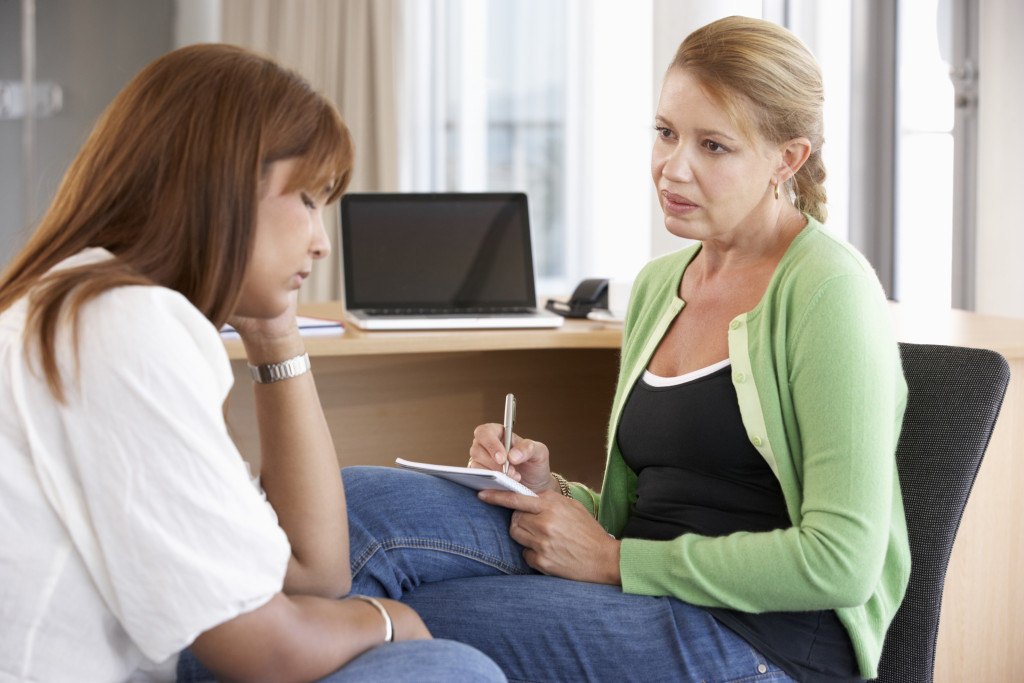If you are being abused at home, it is crucial to reach out for help. Many organizations can assist you, including the National Domestic Violence Hotline (1-800-799-7233). You can also call the police if you feel like you are in immediate danger. Remember, you are not alone, and there is help available.
If you feel like you are in extreme danger, call 911. You can also call the National Domestic Violence Hotline at 1-800-799-7233 for 24/7 support from trained advocates. If you need to talk to someone outside of the U.S., you can find a list of international hotlines online.
Many local organizations can help, such as domestic violence shelters and counseling services. Once you get help, it would be wiser to speak with a domestic violence attorney, and they can help protect your rights and safety, as well as the rights and security of your children.
Why abuse happens
Domestic abuse is a pattern of behavior used to gain or maintain power and control over an intimate partner. It can happen to anyone, regardless of gender, race, ethnicity, sexual orientation, or economic status.
Abuse is not just physical violence. It can also be emotional, sexual, or financial abuse. Abusive behavior can include:
- Name-calling or put-downs
- keeping someone from seeing their friends or family
- Controlling what someone wears
- Decision making about shared finances
- Stalking
- Threatening to hurt someone or themselves
- Harming pets
- Destroying property
- Physical violence, such as hitting, kicking, biting, strangling, or using a weapon
- Sexual violence, such as forced sex or unwanted touching
Abusers usually come from all different types of backgrounds, and they can be men or women. The one thing they have in common is that they all use abuse to control their partners.
While anyone can be a victim of domestic abuse, some groups of people are more likely to be targeted. These include:
- Women
- People who identify as LGBTQIA+
- People with disabilities
- Immigrants
- Native Americans
- Elderly people
- Children
Abuse is never the victim’s fault. No one deserves to be abused, no matter what they have done or not done.
Most victims do not seek help because they are afraid of their abuser or do not know where to turn. Other reasons include:
- Shame or embarrassment
- feeling like it is their fault
- thinking that the abuse will get worse if they try to leave
- fearing that no one will believe them
- not having any money or resources
- considering that their children need a father or mother
- not having a place to go
- being afraid of deportation
Domestic abuse is a severe problem that affects millions of people every year. If you are being abused, it is crucial to reach out for help.
Overcoming abuse
Once you get out of an abusive home, it’s time to heal. Unfortunately, the healing process can be long and difficult. It’s vital to get professional help from a therapist or counselor specializing in domestic violence. You can also find support groups in your area or online.
It will take time to rebuild your life, but living a happy and healthy life is possible after abuse.
1. Get professional help from a therapist or counselor specializing in domestic violence.
It is crucial to get professional help from a therapist or counselor specializing in domestic violence. This is because they can help you understand what you have been through and assist you in developing a plan to move forward.
2. Find a support group in your area or online.
Finding a support group can be extremely helpful as you rebuild your life. These groups provide a safe space to share your experiences and connect with others going through similar situations.
3. Work on rebuilding your life and relationships with family and friends.
Rebuilding your life after abuse can be complicated, but it is possible. You may need to seek legal help to protect your rights and safety and the rights and security of your children. It is also essential to focus on self-care and do things that make you happy.
4. Live a healthy lifestyle by eating right, exercising, and getting enough sleep.
Living a healthy lifestyle is vital for both your physical and mental health. Eating right, exercising, and getting enough sleep will help you feel better physically and mentally.
5. Seek legal help to protect your rights and safety.
Finally, it is vital to seek legal help to protect your rights and safety. A domestic violence attorney can help you navigate the legal system and ensure that your rights are protected.
Conclusion
Abuse is a severe problem that affects millions of people every year. If you are being abused, it is crucial to reach out for help. Many resources are available to assist you, including hotlines, shelters, and counseling services. Overcoming abuse can be complicated, but it is possible to live a happy and healthy life after abuse.


